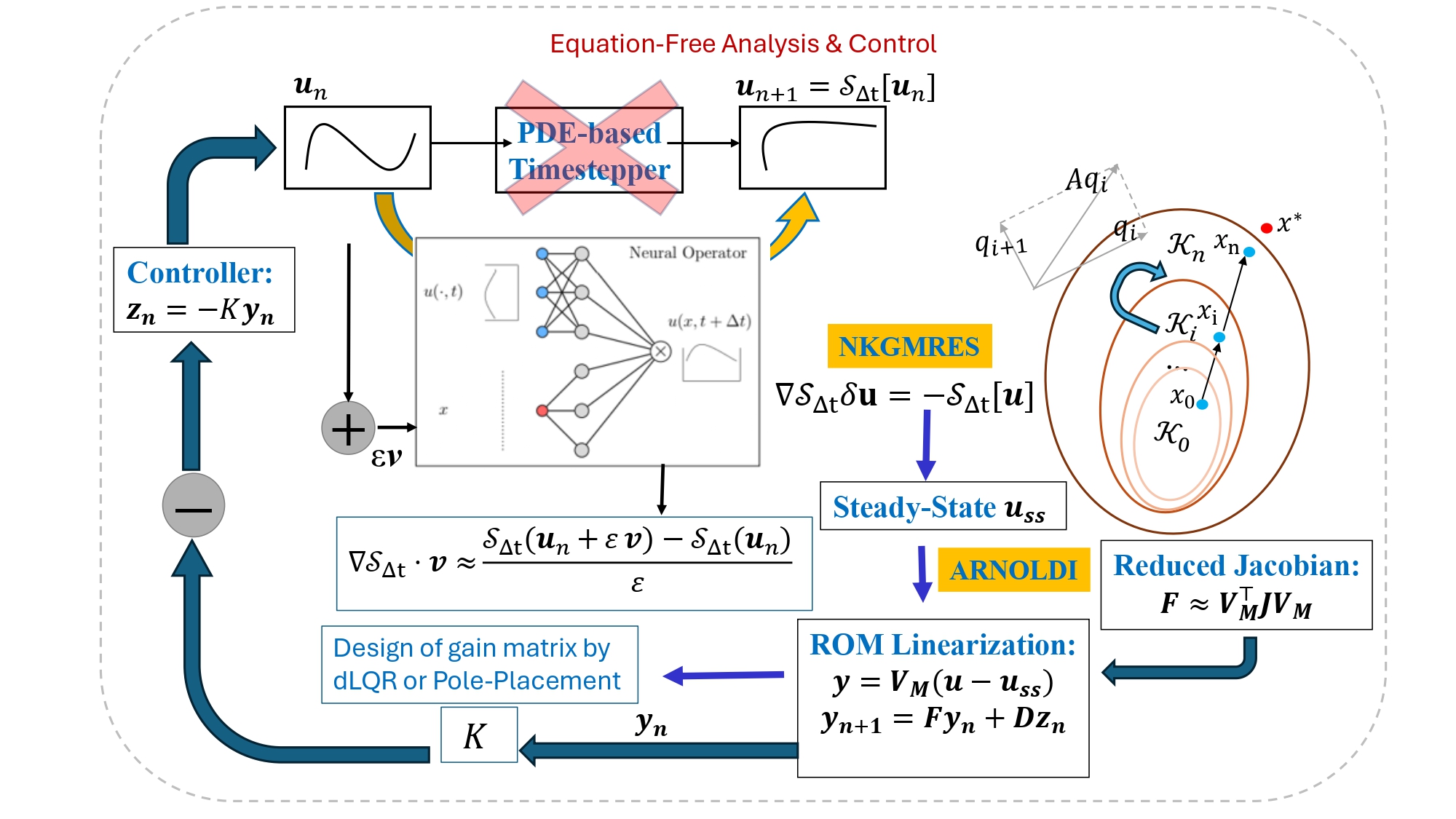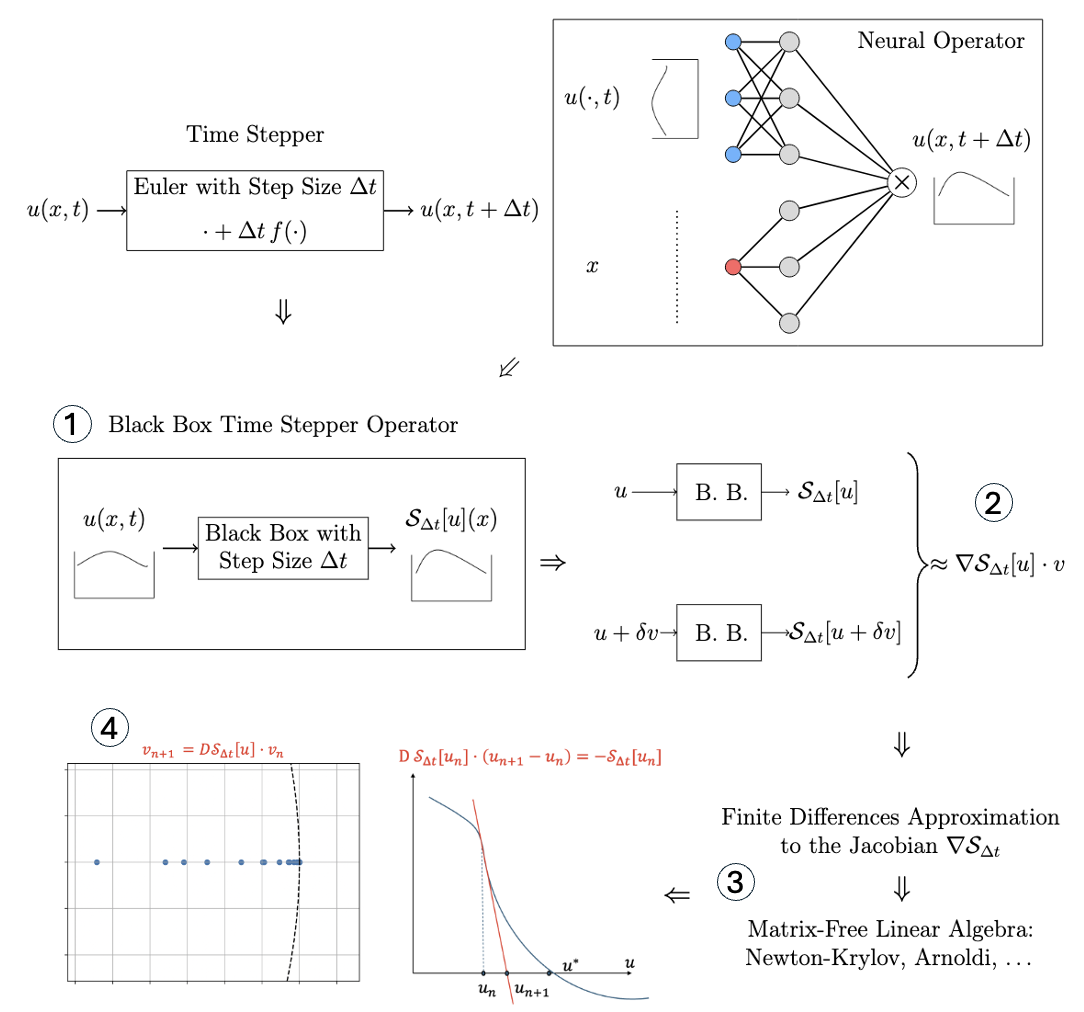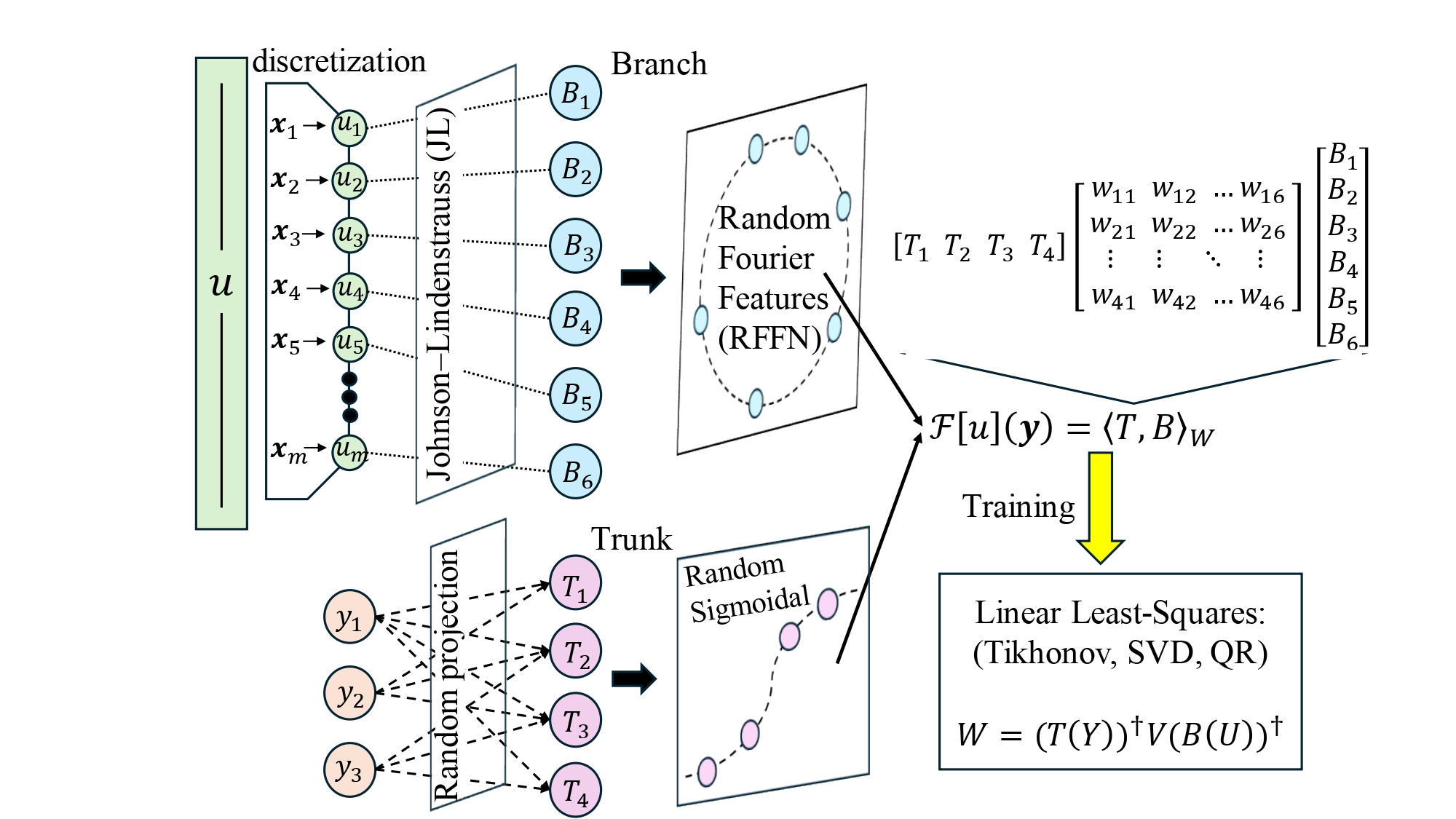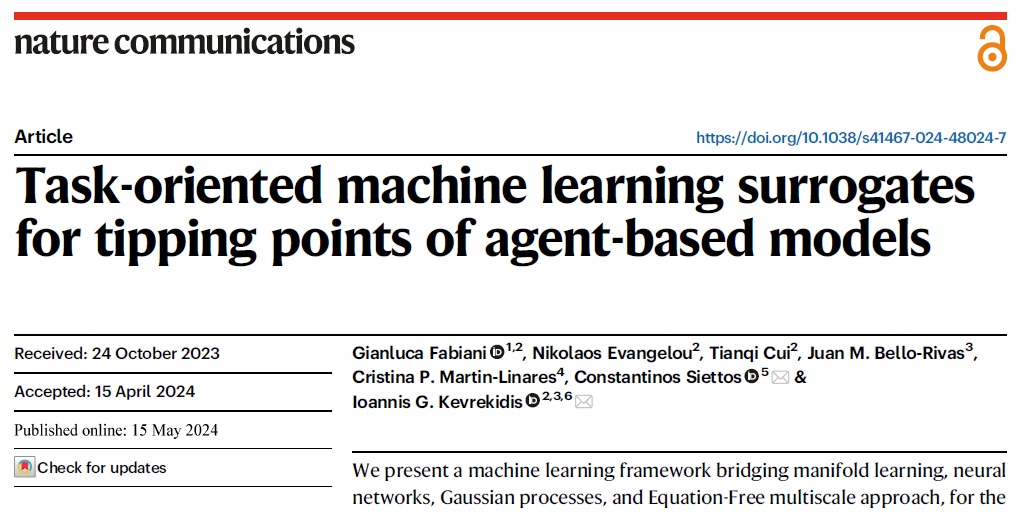Dr. Gianluca Fabiani’s Research Space - Where Mathematics Meets Machine Learning

“Exploring the Hidden Patterns of Complexity with intersection of AI/ML and Numerical Analysis”
Introduction
I am a Postdoctoral fellow at the Hopkins Extreme Materials Institute, Johns Hopkins University, JHU. Formerly, I was a PhD student in Modeling and Engineering Risk and Complexity (MERC) at Scuola Superiore Meridionale (SSM), Naples, Italy. I also got a Master’s Degree in Applied Mathematics at Federico II University. My research interests concern numerical analysis, machine learning, bifurcation analysis and mathematical modeling with particular emphasis on problems that arise in multiscale and multiphase complex systems.
News
- New Arxiv preprint
- Georgiou, K., Fabiani, G., Siettos, C., & Yannacopoulos, A. N. (2025). HEATNETs: Explainable Random Feature Neural Networks for High-Dimensional Parabolic PDEs. arXiv preprint arXiv:2511.00886.
- New Arxiv preprint
Fabiani, G., Siettos, C., & Kevrekidis, I. G. (2025). Equation-Free Coarse Control of Distributed Parameter Systems via Local Neural Operators. arXiv preprint arXiv:2509.23975.
- New Arxiv preprint:
- Kavousanakis, M., Fabiani, G., Georgiou, A., Siettos, C., Kevrekidis, P., & Kevrekidis, I. (2025). Going with the Flow: Solving for Symmetry-Driven PDE dynamics with Physics-informed Neural Networks. arXiv preprint arXiv:2509.15963.
- New Arxiv preprint:
- Fabiani, G., Vandecasteele, H., Goswami, S., Siettos, C., & Kevrekidis, I. G. (2025). Enabling Local Neural Operators to perform Equation-Free System-Level Analysis. arXiv preprint arXiv:2505.02308.
Recent publications in
- New SIAM Journal on Mathematics of Data Science paper published (my first single-author work)
- Fabiani, G., Random projection neural networks of best approximation: Convergence theory and practical applications, SIAM Journal on Mathematics of Data Science 7 (2), 385-409, 2025
- New J Comp. Phys. paper published
- Fabiani, G., Kevrekidis, I. G., Siettos, C., & Yannacopoulos, A. N., RandONets: Shallow-Networks with Random Projections for learning linear and nonlinear operators, Journal of Computational Physics, Volume 520, 113433, 2025
- Code public in a GitHub repository
- Nature Communications 15:
- Fabiani, G., Evangelou, N., Cui, T. et al. Task-oriented machine learning surrogates for tipping points of agent-based models. Nat Commun 15, 4117 (2024).
SIAM Journal on Scientific Computing 46 (4), C297-C322, Slow invariant manifolds of singularly perturbed systems via physics-informed machine learning, D Patsatzis, G Fabiani, L Russo, C Siettos

Chaos, Solitons & Fractals 186, 115215, Nonlinear discrete-time observers with physics-informed neural networks HV Alvarez, G Fabiani, N Kazantzis, IG Kevrekidis, C Siettos
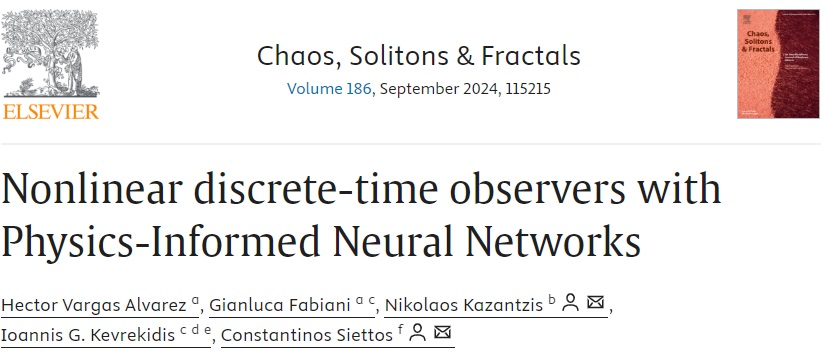
- Journal of Physical Oceanography 54 (7), 1389-1409, Tipping points in overturning circulation mediated by ocean mixing and the configuration and magnitude of the hydrological cycle: A simple model, A Gnanadesikan, G Fabiani, J Liu, R Gelderloos, GJ Brett, Y Kevrekidis, …
- Soft Computing, On the accuracy of interpolation based on single-layer artificial neural networks with a focus on defeating the Runge phenomenon, F Auricchio, MR Belardo, F Calabrò, G Fabiani, AF Pascaner
Research Group Photo
From left to right: Dr. Dimitrios Patsatzis, Hector Vargas Alvarez, Me, Prof. Constantinos Siettos, Dr. Lucia Russo, Prof. Ioannis Kevrekidis, Prof. Felix Dietrich, Dr. Nikolaos Evangelou
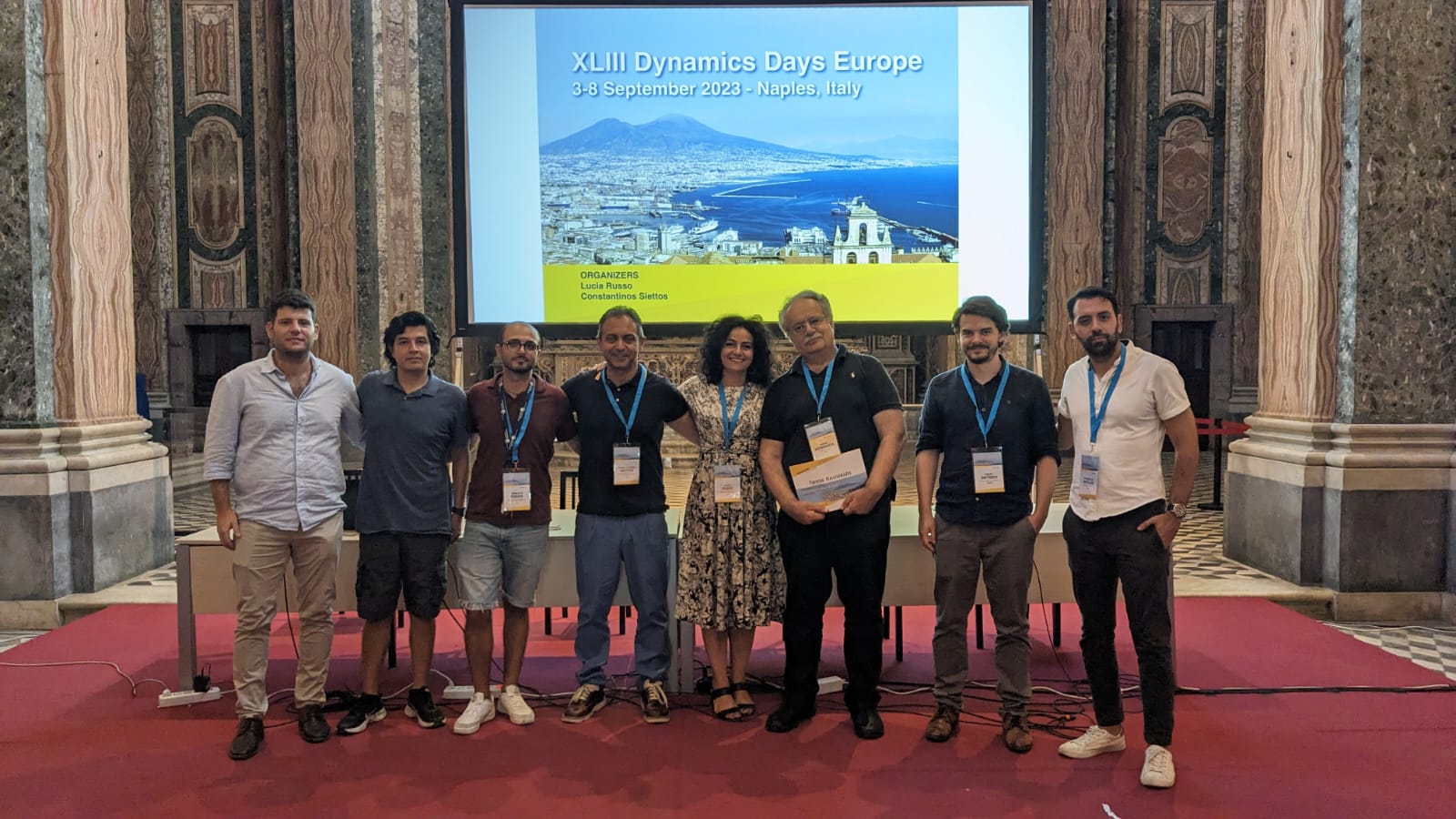
From left to right: Prof. Constantinos Siettos, Dr. Alessandro Della Pia, Me, GianMaria Viola, Hector Vargas Alvarez
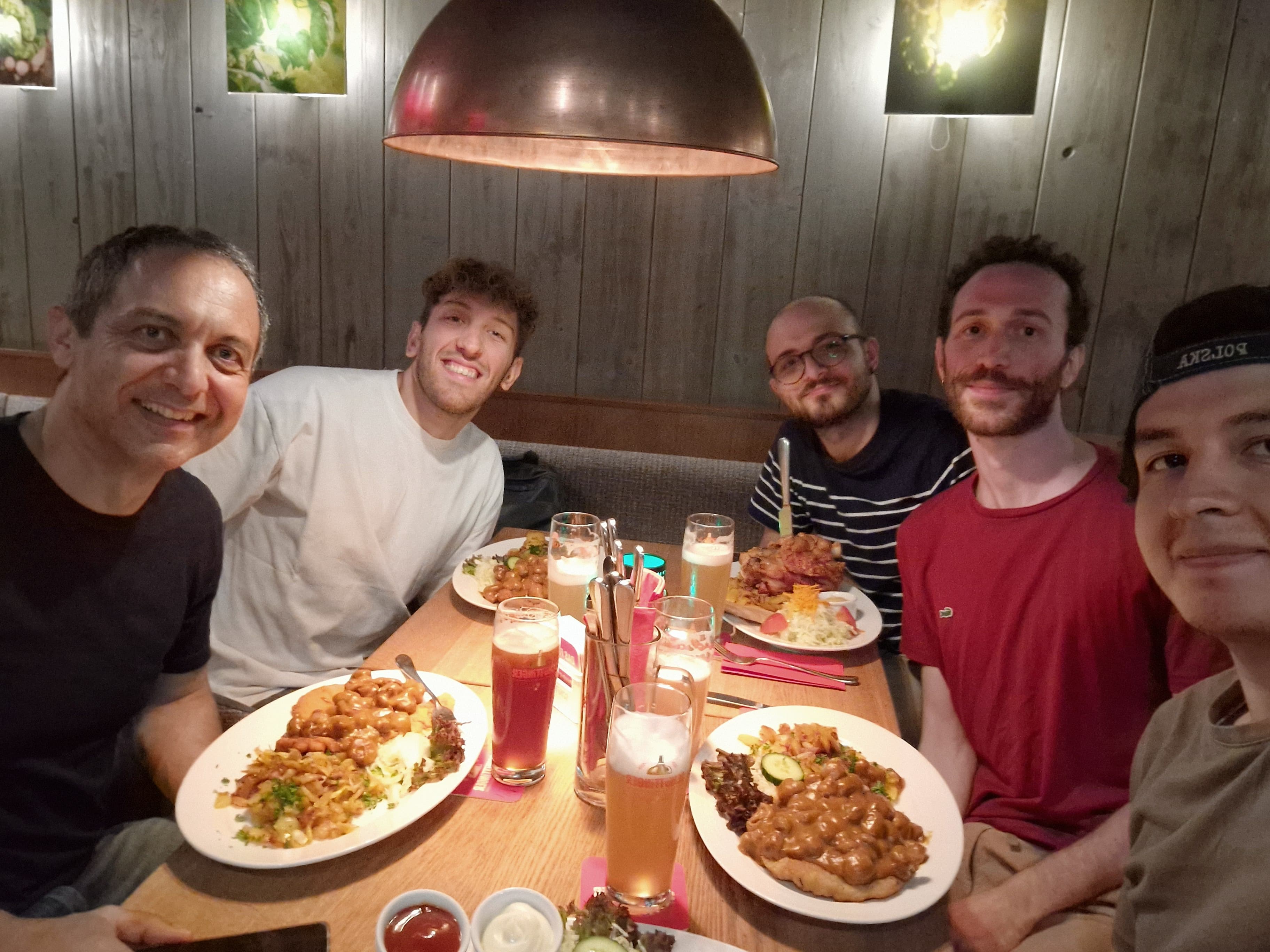
Disciplines
Computing in Mathematics, Natural Science, Engineering and Applied Mathematics
Skills and expertise
Programming in MATLAB, C, Fortran, Python, TensorFlow
Research Topics
- Random Projection Neural Networks
- Machine Learning
- Neural Networks and Artificial Intelligence
- Numerical Analysis of Partial Differential Equations
- Complex Systems
- System Identification and Data-Driven Discovery of Governing Equations
- Numerical Bifurcation Analysis
- Complex Networks
- Pattern Recognition
- Operator Learning for PDEs
- Surrogate Modeling for Multi-scale Systems
- Physics-Informed Neural Networks (PINNs)
- Equation-Free Multiscale Computation
- High-Dimensional Approximation Techniques
- Nonlinear Dynamical Systems
- Krylov Subspace methods
- Koopman Operator Theory in Machine Learning
- Spatiotemporal Chaos and Turbulence Modeling
- Phase-Field Modeling and Free Energy Analysis
- Rare Events and Tipping Points in Dynamical Systems
- Model Reduction Techniques (e.g., POD, DMD, Autoencoders)
- Graph Neural Networks for Dynamical Systems
- Inverse Problems and Data Assimilation
- Stochastic Processes and Stochastic PDEs
- Uncertainty Quantification in Physical Models
- Functional Analysis for Neural Networks and Neural Operators
- Large Language Models and Agentics

